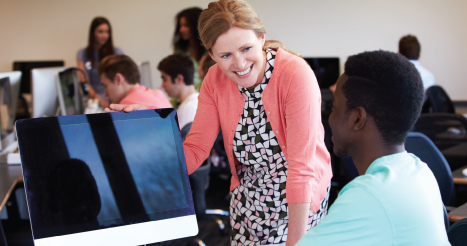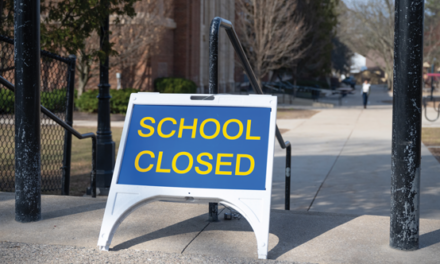New PDK poll suggests the time may be right to infuse academics with more career-readiness.
If there was ever a summer of discontent, this year has brought it forth. Much like the summer of 1968, when violence, war, and upheaval was everyday news in the U.S. and abroad, the summer of 2016 has been equally chaotic and sorrowful. Election years are always a little strange, even more so for those of us who live in Washington, but this presidential campaign has been the strangest in memory. Instead of reinforcing the fundamental values and freedoms that have been central to our democracy, this campaign has instead made us doubt ourselves and question what we stand for. Do we even know and understand what it means to be an American in 2016?
While the question may be rhetorical, the answers are important. To that end, this year’s PDK Poll of the Public’s Attitudes Toward the Public Schools offers some compelling new data points regarding how Americans feel about public education and local schools. The annual poll, now in its 48th year, queried a representative, 50-state sample of 1,221 adults. The questions covered a range of predictable education topics (standards, charters, homework, technology), but it also asked new questions about the goals of public education and how best to prepare students for life after high school.
For example, when asked what the main goal of public education should be, a little less than half of the respondents (45%) said it should be to prepare students academically. In an era of depressing international comparisons, this surprised me. I expected academic preparation to be far and away the leading answer. Rather, 25% of respondents said the goal of public education should be to prepare students for work; another quarter said the goal should be preparation for good citizenship.
These findings reflect the three domains that dominate most policy discussions about how best to prepare students for life beyond public school. No Child Left Behind’s rigorous testing regime and punitive consequences helped make academic preparation (as indicated by test scores at least) the ultimate goal of education for the better part of a decade. I suspect the tepid support for academic preparation reflects a kind of post-traumatic stress after the NCLB years. Perhaps Americans are simply tired of the relentless chatter about achievement, testing, and why Finland and Singapore shame us on international assessments.
Although the new Every Student Succeeds Act (ESSA) has ushered in an era that now supports less testing and what Secretary of Education John King has called a more “well-rounded” education, the pain of NCLB is still present for many parents and educators. ESSA, with its blunted accountability measures and emphasis on local control, may help resolve the lingering concerns about academic preparation and testing gone overboard, but we are a long way from knowing that right now.
The respondents who say the goal of education should be to prepare students for work also may be reflecting the economic turbulence of recent years. In a related result, the poll also found that respondents by a broad margin of 68% to 21% say it is better for their local public schools to focus on career-technical or skills-based classes rather than honors or advanced academic classes. This emphasis on preparing students for work is reiterated in several other data points within the poll.
Although many policy makers seek to bridge the gap between what constitutes college- vs. career-readiness, the divide reflected in the poll also still exists in policy and practice. Career-readiness, with its emphasis on more practical workplace skills and abilities, is still trying to come out from under the shadows of what was once called vocational education. For a long time, this alternate pathway, which emphasized practical working skills, was regarded as the more suitable option for lower-achieving students.
In recent years however, research has shown how inaccurate and antiquated this attitude really is. Career skills are now recognized as a valuable part of the preparation equation. The 21st-century workforce continues to evolve at a breakneck pace, and employees need a wide range of both knowledge and skills to be competitive. Although a four-year college degree remains a strong advantage in the workplace, the national conversation about college- and career-readiness has shifted to include an emphasis on the skills and abilities needed and coveted by employers.
And finally we come to citizenship, also referred to as civic readiness, the red-haired stepchild among these three broad areas of preparation. While some speak passionately about the need for civic education, the policy world has been agnostic on the topic. The good news for those who care about schools teaching citizenship is that ESSA does include some modest funding for civics-related education. Perhaps the shifting global landscape and the insanity of the current presidential election has made people realize that civic knowledge and responsible citizenship are not silly notions that one can pick up along the way. My two cents are that in a world where the fundamental tenets of American life are being questioned and challenged by some who appear to be unfamiliar with the U.S. Constitution, a little focus on citizenship and civics might not be a bad thing.
While Americans may be at odds regarding the main goal of education, they are fairly united when it comes to handling failing schools in their community. By an 84% to 14% margin, respondents said that when a local public school has been failing for several years, the best approach is to keep it open and try and improve it rather than close it. By a 2-to-1 margin, the respondents also said that replacing administrators and faculty in failing schools is preferable to giving them more resources and support staff.
This response indicates that while Americans feel a great sense of loyalty and ownership over their local schools, they still want a tangible return on their investments. A concern for school funding has been evident in the PDK poll for 15 years, with Americans citing a lack of money or financial support as the top problem facing the nation’s public schools. Unfortunately, this year’s poll also shows that schools perceived as needing the most improvement are least likely to garner community support for funding increases. Sixty percent of those who give their public schools an A grade support increased taxes to improve schools. For those who give their local schools an F grade, the level of support for a tax increase to support public schools is much lower.
These two aspects of the poll remind us that for many Americans, public education is both a reality and an ideal. In a perfect world, the pursuit of knowledge represents the highest of human endeavors. The education itself is what matters and the return on investment is the depth of knowledge you gain. For some, however, that ideal can be easily obscured by financial concerns, learning disabilities, or a host of other realities. Practicality gets factored into the equation, and the return on investment for an education becomes far more transactional.
But does that mean that the path forward has to be subject to the tyranny of mutual exclusivity? Is it so unrealistic to think that the main goal of public education can and should offer students both academic preparation and career skills? These aspects of the poll serve as an excellent reminder for education leaders and policy makers who try and force students into some kind of archaic college or career track. States like California and New Hampshire are already out in front, demonstrating that Americans can have the best of both in public schools. Indeed the skills gap now garners just as much air and screen time as the nation’s lackluster performance on international assessments. The next decade will no doubt continue to change local public schools and how Americans feel about them. Perhaps this year’s poll reminds us that public education is at its best when it allows students to reach for their ideals but also manage their realities.
MARIA FERGUSON (mferguson@gwu.edu) is executive director of the Center on Education Policy at George Washington University, Washington, D.C.
Citation: Ferguson, M. (2016). Academic emphasis may not be enough for Americans. Phi Delta Kappan 98 (1), 42-43.
ABOUT THE AUTHOR

Maria Ferguson
Maria Ferguson is an education policy researcher, thought leader, and consultant based in Washington, DC.










